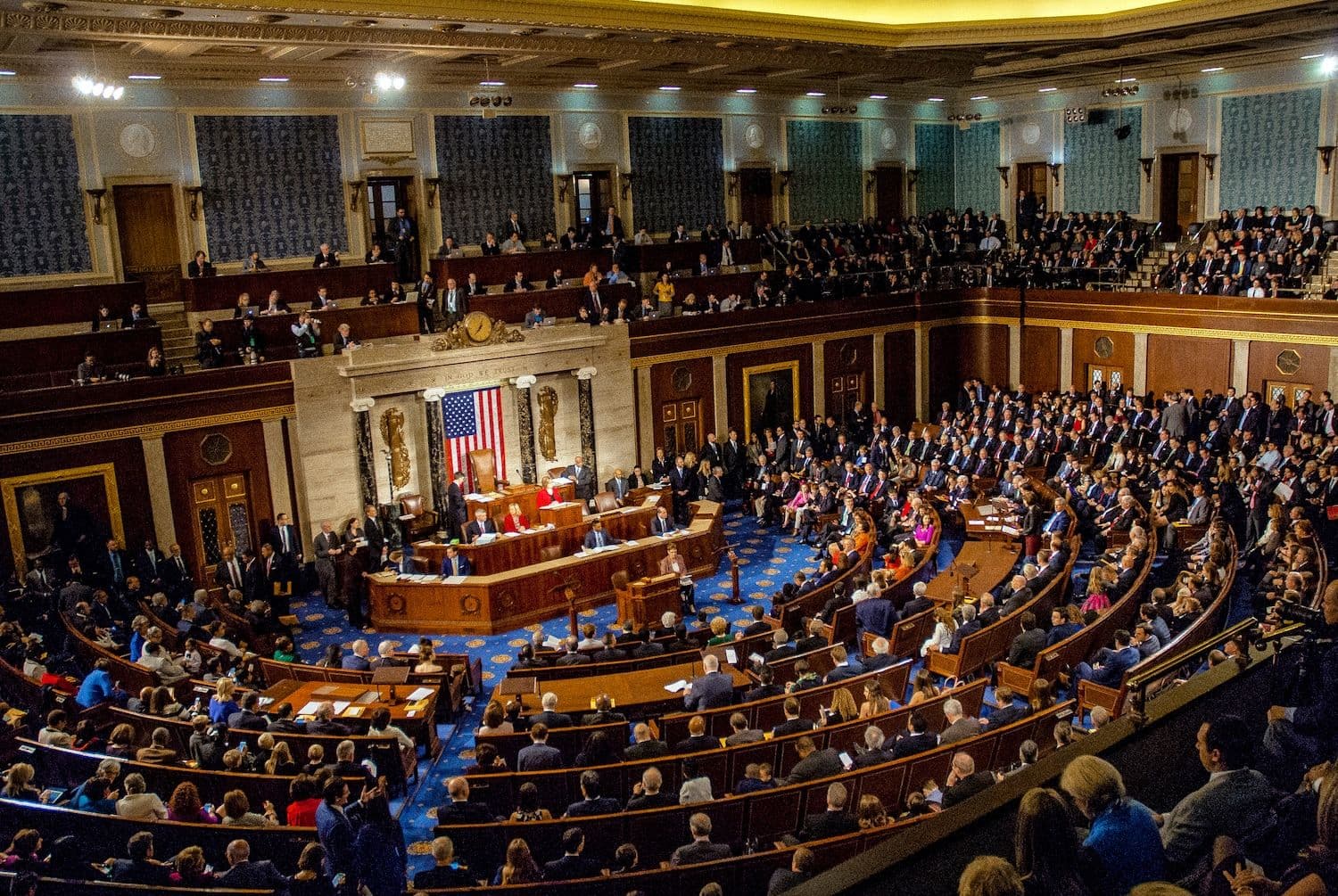The U.S. Senate voted to advance a major cryptocurrency regulation bill Monday, securing crucial Democratic support in a procedural move that signals growing bipartisan consensus on digital asset oversight. The Guiding and Establishing National Innovation for US Stablecoins (GENIUS) Act cleared a key cloture vote with 66 senators in favor and 32 opposed, propelling the legislation toward full Senate consideration.
What to Know:
- Sixteen Democratic senators broke ranks to support the Republican-led stablecoin regulation bill
- The legislation could potentially drive demand for U.S. Treasury bonds by over $1 trillion, according to its sponsor
- Critics including Sen. Elizabeth Warren warn the bill lacks sufficient protections against financial instability
The cloture vote represents a significant procedural hurdle cleared but doesn't guarantee final passage. If approved by the full Senate, the bill would establish the first comprehensive federal framework for regulating stablecoins, digital currencies designed to maintain a stable value by pegging to traditional assets like the U.S. dollar.
Democratic Support Shifts Balance
The unexpected support from sixteen Democratic senators marked a crucial turning point for the legislation. Among those voting in favor were senators representing diverse constituencies, including John Fetterman of Pennsylvania, Cory Booker of New Jersey, and Alex Padilla of California.
"Last thing — here's the list of sixteen Dems that flipped their votes to yes: 1. Alsobrooks 2. Hassan 3. Warner 4. Schiff 5. Padilla 6. Slotkin 7. Blunt-Rochester 8. Cortez Masto 9. Fetterman 10. Gallego 11. Gillibrand 12. Heinrich 13. Lujan 14. Ossoff 15. Rosen 16. Booker," reported Eleanor Terrett, who covers cryptocurrency policy.
Terrett noted that Republican leadership had hoped to secure a final passage vote before the Memorial Day holiday on Monday, though timing remains uncertain. The bill could reach the Senate floor as early as Tuesday evening for debate and possible amendments.
Coinbase Chief Policy Officer Faryar Shirzad characterized the vote as a "historic early win" despite acknowledging that many legislative steps remain before the bill could become law. "Crypto is again showing that it's the biggest bipartisan issue in play on the Hill," Shirzad wrote on social media.
Senator Bill Hagerty, the bill's sponsor, emphasized potential macroeconomic benefits of the legislation. He claimed the GENIUS Act could significantly boost demand for U.S. Treasury bonds while enhancing the country's payment infrastructure. "The GENIUS Act skyrockets the United States with a digital payment framework with the fastest rails possible. It will ensure US dollar dominance," Hagerty stated.
Sharp Criticism from Banking Experts
Despite growing momentum, the legislation faces substantial opposition from financial stability advocates. Senator Elizabeth Warren, Ranking Member of the Senate Banking Committee, cited Nobel Prize-winning economist Simon Johnson in her critique.
"We urgently need strong regulatory oversight of stablecoins. The GENIUS Act lacks fundamental provisions to preserve financial stability and would increase systemic risk stemming from stablecoin runs and inadequate guardrails on foreign issuers," Johnson warned in a statement quoted by Warren.
Cryptocurrency commentator Richard Heart delivered an even more pointed condemnation. He argued the bill would effectively force stablecoins into the traditional banking system, restricting decentralized alternatives and stifling innovation in the broader digital finance ecosystem.
"It's a stablecoin crackdown that protects incumbents and could handcuff DeFi innovation. USDC, USDT, DAI," Heart stated, referencing major stablecoin projects potentially affected by the legislation.
The unusual alliance between some Democrats and Republicans reflects the complex politics surrounding cryptocurrency regulation. Industry advocates have long pushed for regulatory clarity, while traditional banking interests and consumer protection groups have emphasized potential risks to financial stability.
If enacted, the GENIUS Act would establish legal frameworks for stablecoin issuers, impose reserve requirements, and create oversight mechanisms for the growing digital asset class. Critics contend these measures could entrench established financial institutions while hampering technological innovation.
Uncertain Path Forward
The legislation now moves to the Senate floor where it faces potential amendments and continued debate. Even with bipartisan support demonstrated in the cloture vote, final passage remains uncertain as competing interests jockey for influence over the bill's provisions.
As cryptocurrency continues to integrate with traditional finance, the stakes for regulatory frameworks grow increasingly high. The GENIUS Act represents one of the most significant legislative attempts to bring stablecoins under federal oversight, with implications that could reshape the digital asset landscape for years to come.



